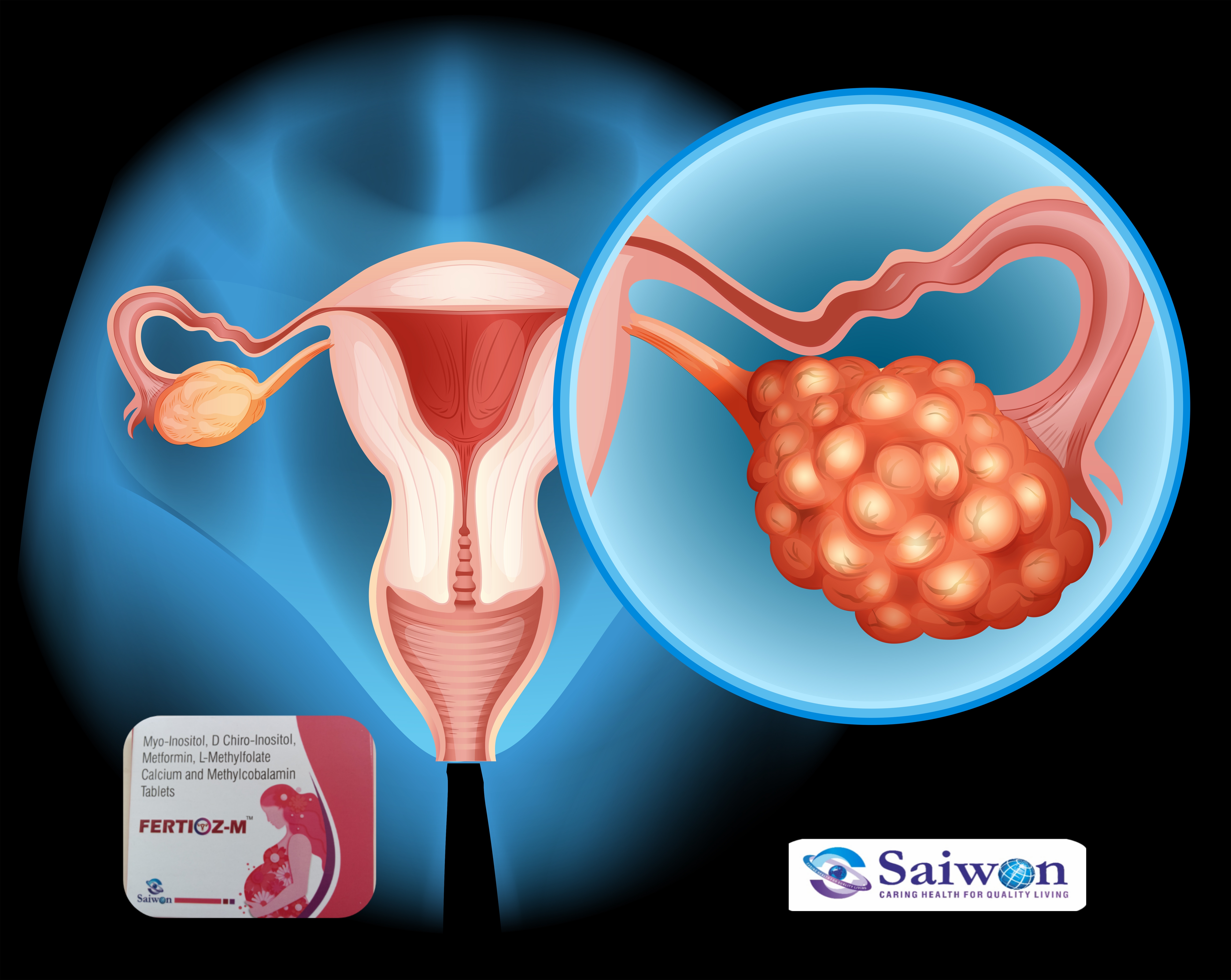How PCOS affects fertility in women and ways to manage it
Polycystic Ovarian Syndrome (PCOS) is a disorder of the endocrine region causing a lack of ovulation in women. Most women experience irregular periods, unexplained weight gain and hirsutism (resembling the male pattern of hair growth).Â
It is the most prevailing female endocrine disorder and a major cause of infertility with a worldwide range of 6-26%, and in India, it is 3.7-22.5%. The risk factors for the development of PCOS include genetics, neuroendocrine system, an inactive lifestyle, diet, and obesity.
Ahead of International Women's Day (March 8), doctors open up about PCOS, which is one of the most prevalent disorders affected by women and girls in India, and how it can cause fertility issues.
In PCOS, small fluid-filled sacs (follicles or cysts) may form in the ovaries but often fail to mature and release an egg. This can lead to the accumulation of undeveloped follicles and hinder the normal ovulatory process.
Dr Mukta Kapila, Director & HOD, Obstetrics & Gynae Minimal Invasive Surgery, Fortis Memorial Research Institute, Gurugram, told , "In a normal cycle, an egg is released from the ovary 14 days before menstruation. It either gets fertilised or it disappears in 12 to 24 hours. But in PCOS, many times, the egg is not released and it stays inside the ovary and hence, may cause infertility. Around 70% of the girls experience the inability to conceive."
Due to changes in hormonal levels and irregular ovulation, the lining of the uterus (endometrium) might also be affected. The endometrium may not develop adequately, making it less conducive for embryo implantation.
Dr Anjali Kumar, Director, Obstetrics and Gynaecology, CK Birla Hospital, Gurugram, said that women with PCOS often have difficulty conceiving and therefore, need medical procedures to increase their chances of getting pregnant.
Although PCOS can be managed, if left unchecked, it can lead to diabetes and various metabolic disorders, warn doctors.Â
SYMPTOMS OF PCOS
Period irregularities: PCOS frequently results in irregular menstrual cycles. When ovulation fails to occur, the uterine lining does not shed monthly, leaving women with PCOS with fewer than eight periods annually, or perhaps none at all.
Heavy bleeding: When menstruation does occur, it may be heavier than usual because of the prolonged build-up of the uterine lining.
Excessive hair growth: Known as hirsutism, excessive facial and body hair growth affects more than 70% of women with PCOS. This asymmetry of hair can show up on the chest, belly, and back.Â
Acne: Excess testosterone (male hormone) in PCOS patients can cause oilier skin and recurrent breakouts, which usually affect the face, chest, and upper back.
Skin changes: In body creases like the neck, groyne, and under the breasts, dark patches of skin may appear.Â
Headaches: In women with PCOS, hormonal imbalances may occasionally be the cause of headaches.
The cause of polycystic ovaries is not clear, said Dr Kapila, adding that it could be "genetic and lifestyle-related, which is unhealthy eating habits ,unexplained weight gain , disturbed sleep pattern and taking stress."
Here's how you can manage PCOS, explained Dr Anjali Kumar.Â
Lifestyle modifications: Maintaining a healthy weight can greatly increase fertility. Menstruation can return to normalcy and the likelihood of ovulation can be increased by losing weight through diet and regular exercise. Include regular exercise in your routine to lower stress, enhance cardiovascular health and control insulin levels.Â
Dietary modifications: Since insulin levels are frequently high in PCOS, a low-glycemic index diet can help control them. Reduce the amount of processed foods, sugary snacks, and sweetened beverages.
Manage stress: Fertility issues can be lowered by managing stress You can use methods like yoga and meditation.
Regular monitoring and check-ups: Make an appointment with your doctor frequently to discuss your PCOS symptoms, hormone levels, and general health. Monitor your blood sugar levels regularly, especially if you are at risk for type 2 diabetes.
Treatment option
In PCOS treatment, a 40:1 ratio of myo-inositol to D-chiro-inositol, combined with metformin, L-methyl folate, and methylcobalamin, offers superior efficacy compared to plain myo-inositol and metformin combination due to their complementary modes of action. Myo-inositol improves insulin sensitivity and ovarian function, while D-chiro-inositol regulates insulin signaling and promotes ovulatory function. Metformin further enhances insulin sensitivity and reduces androgen levels. L-methyl folate supports metabolic processes and aids in reproductive health by regulating ovarian function and follicular development. Methylcobalamin helps balance hormones and improves metabolic functions. Together, this comprehensive approach addresses multiple facets of PCOS pathology, including insulin resistance, hormonal imbalance, menstrual irregularities, and infertility, resulting in superior outcomes compared to using myo-inositol and metformin alone.
If these measures don't help, then your gynaecologist will give you medicines to induce ovulation. "Simultaneously, you will have to work on your lifestyle as well. IVF (In vitro fertilisation) may also be needed if a woman is not able to conceive. But don't lose hope. It is very manageable," assured Dr Kapila.

